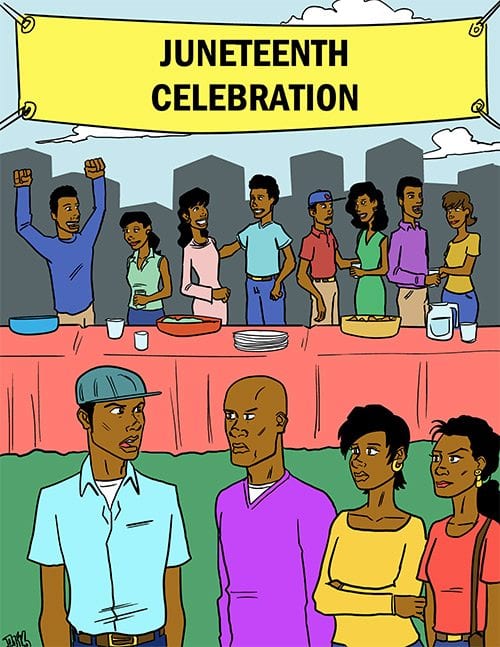
Juneteenth is a Texas holiday that has gone viral. It began as an acknowledgement of the day that Lincoln’s Emancipation Proclamation was enforced in Texas on June 19, 1865. Texas was the last state of the Confederacy to comply. There seems to be a mistaken belief that slavery became illegal everywhere in the country on that date. That assumption is historically incorrect.
When Abraham Lincoln was elected president he was determined to end slavery. However, he did not have the constitutional authority to do so without congressional approval. Once the Confederate states rebelled and launched the Civil War on April 12, 1861, Lincoln then had the authority as commander in chief of the Union Army to end slavery as a military tactic. By executive order, Lincoln issued a proclamation to abolish slavery on Jan. 1, 1863. This proclamation applied only to those states and sections of states that had joined the Confederacy in war against the Union.
The Emancipation Proclamation applied only to Alabama, Florida, Georgia, Louisiana, Mississippi, South Carolina and Texas, as well as Arkansas, North Carolina and parts of Virginia. Slavery was still permissible elsewhere in the slave states that had not taken up arms against the Union — Delaware, Kentucky, Maryland, Missouri, Tennessee and parts of Virginia.
Maj. Gen. Gordon Granger landed in Galveston, Texas with 2,000 federal troops on June 19, 1865 to enforce Lincoln’s Emancipation Proclamation. That was a two and a half year delay in its implementation. In the meantime, Lincoln had been working assiduously on a constitutional amendment that would settle the questions of the legality of slavery everywhere in the country. Through his efforts the 13th Amendment was ratified on Dec. 6, 1865.
Somehow the Juneteenth date has gained more popularity than Dec. 6, 1865 — the date that ended the legality of slavery everywhere in the U.S. Now 45 of the 50 states and the District of Columbia recognize the Juneteenth holiday as at least a day of observance. Only Hawaii, Montana, New Hampshire, North Dakota and South Dakota do not recognize the holiday.
Like many other states, Massachusetts had a history of slavery. While there never was a law to abolish slavery in the state directly, the Declaration of Rights that states “all men are born free and equal” is part of the state constitution. In 1783, the Massachusetts Supreme Judicial Court ruled that the Declaration of Rights renders slavery unconstitutional in the Commonwealth.
Consequently, Gen. Granger’s foray into Texas 83 years later had no legal consequence in Massachusetts, which already had become one of the leading anti-slavery states. Charles Sumner, who was a Massachusetts U.S. senator from 1851 to 1874, was a vigorous opponent of the Confederacy and an advocate for the freedmen.
Rather than mindlessly celebrating Juneteenth, African Americans should be mindful of the fact that even the 13th Amendment did not end slavery. It merely made slavery illegal. A former New York Times reporter, Douglas A. Blackmon, published the book “Slavery by Another Name: The Re-Enslavement of Black Americans from the Civil War to World War II,” that recorded the many strategies to circumvent the prohibition.
Blacks evicted from the plantations were jobless and penniless. When arrested as vagrants, they could be sentenced to work for plantation owners rather than have the county pay for their imprisonment. The Blackmon book sets forth the record of the continued enslavement of blacks under cover of law.
Enthusiasm for Juneteenth is inappropriate outside of Texas. The universal celebration should be for ratification of the 13th Amendment on Dec. 6, 1865.






